What is a Blogger Tagline and How Do You Write One?
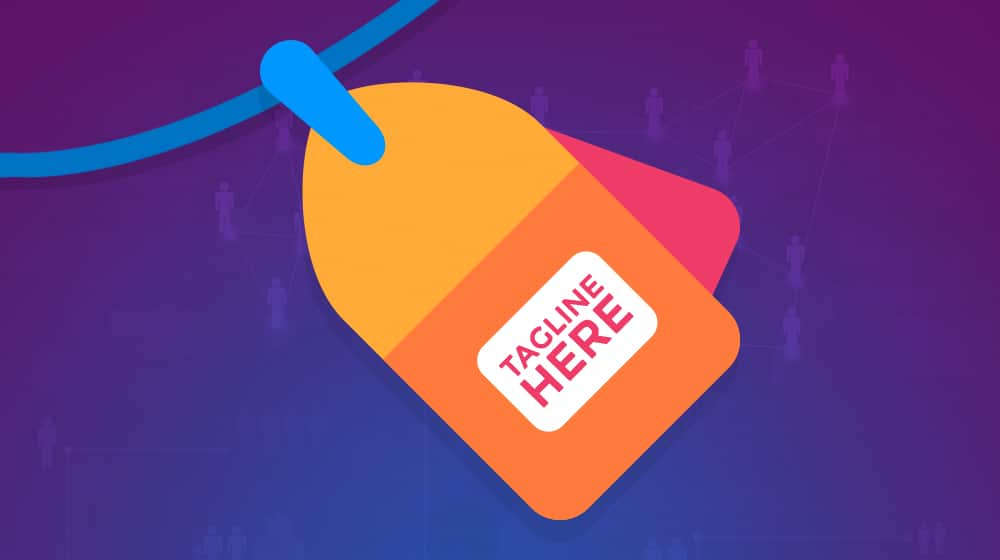
You're probably familiar with taglines, even if you aren't quite sure what they are in a blogging context, or even what they are in general.
Taglines are a kind of slogan, a short, catchy phrase that evokes your brand in some way. Taglines exist to promote movies and brands, to bring some catchy phrase into the public consciousness, and to represent a brand in a way that a logo or a brand name does not. Here; I'll list off half a dozen taglines.
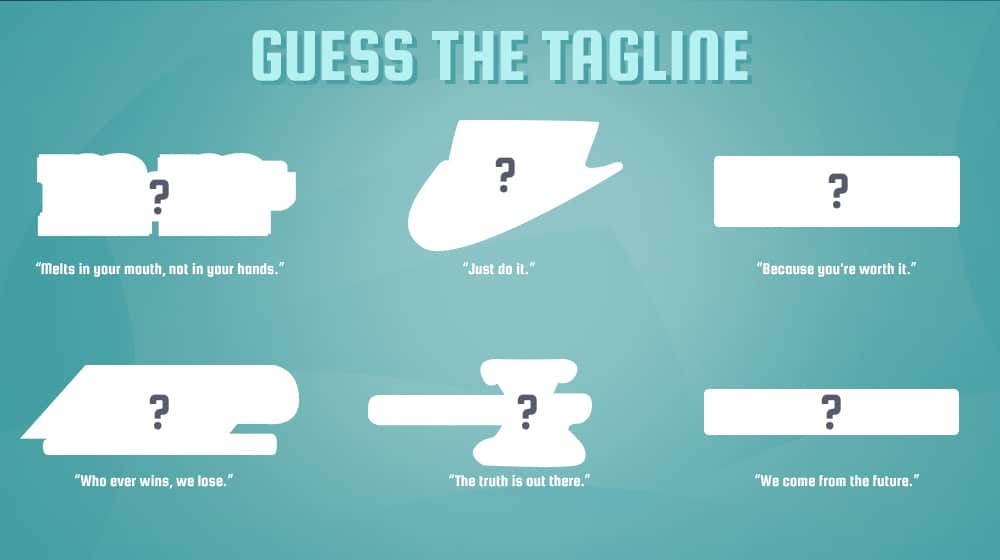
See if you can tell me where they're from.
- "Melts in your mouth, not in your hands."
- "Just do it."
- "Because you're worth it."
- "Whoever wins, we lose."
- "The truth is out there."
- "We come from the future."
You probably recognize most or all of these, though I did try to throw in a curveball. Here's where these are from:
- M&Ms Candy
- Nike
- L'Oréal Paris
- Alien Vs. Predator (2004)
- The X-Files
- Gizmodo
Only one of these is a blog, and it illustrates a point. Blogs can have taglines, but they aren't nearly as important as a tagline is for other media.
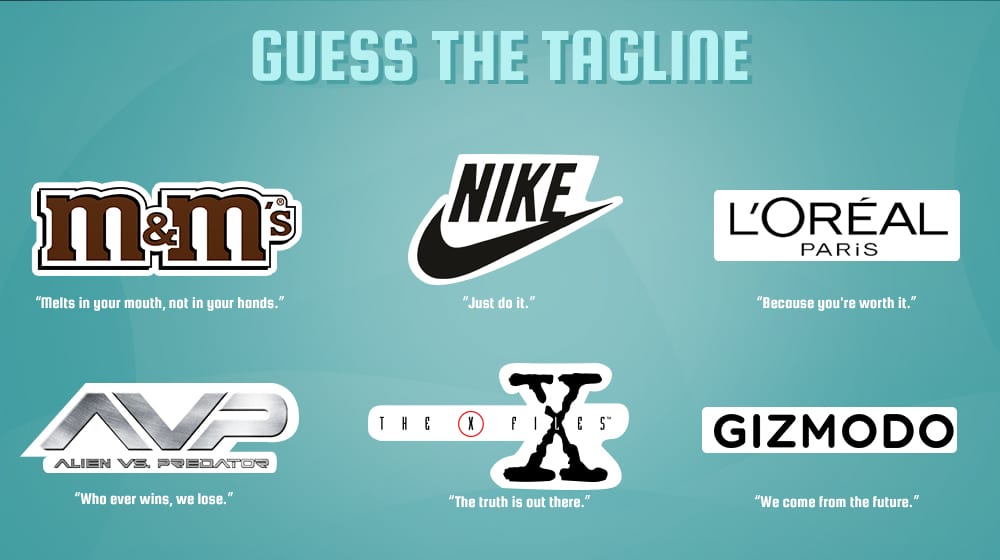
Taglines for big brands become a core part of advertising. They're used in every commercial, on website copy, on print advertising, and anywhere else they can crop up. Taglines for media like movies and television are also important. They convey information about what the media will contain.
Now, take a look at some big blog taglines.
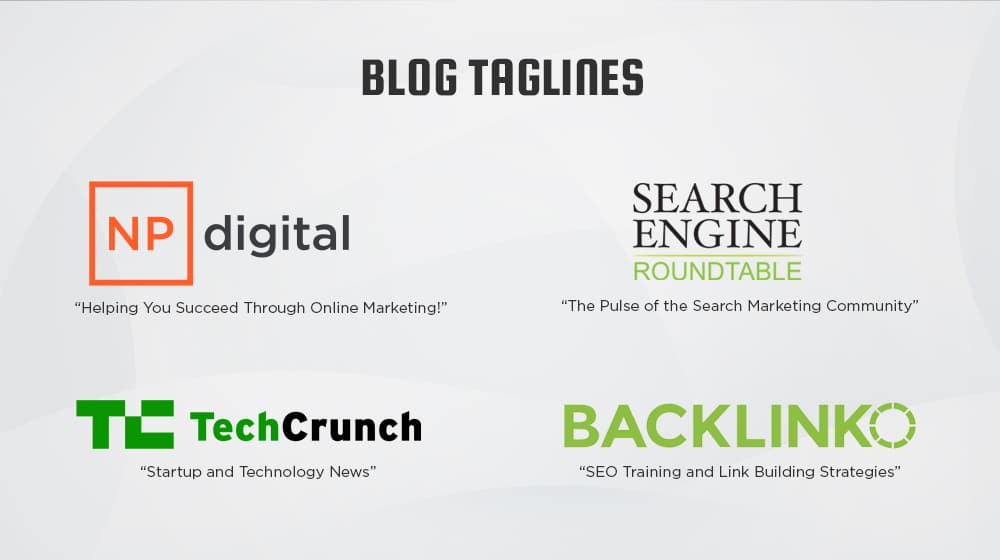
How many of these do you immediately associate with a brand?
- "Startup and Technology News" (TechCrunch)
- "Helping You Succeed Through Online Marketing!" (Neil Patel)
- "The Pulse of the Search Marketing Community" (SERoundtable)
- "SEO Training and Link Building Strategies" (Backlinko)
My guess is, very few of them. That's because taglines for modern blogs operate differently than taglines for other forms of media.
The Purpose of a Blogger Tagline
With a tagline for a major company, you tend to find two different, distinct purposes.
Taglines can be functional. M&Ms is one example; it discusses the quality of the candy that (when the tagline was created in the 70s) was very relevant. Dollar Shave Club is another; their tagline, "Shave Time, Shave Money" indicates what their business is about (shaving) and what they can do (save time, save money).
Other taglines are used more to convey the overall ethos, perspective, or focus of the company. Apple's "Think Different," Nike's "Just do it," and McDonald's's "I'm Lovin' It" are all examples of this.
The biggest difference between a blogger tagline and a tagline for these other companies and forms of media is that a blog needs a tagline to describe what's inside.
None of the example blogger taglines up above are pithy quotes. They all explain what's inside the blog. Gizmodo's comes closest, and even theirs is still descriptive; it tells you that the blog contains content about futurism. All of the marketing blogs have some variation of "you can find marketing tips inside".
A blogger tagline shows up as part of your website's meta titles or descriptions. This allows you to, essentially, describe the purpose of your website. Since many modern websites have fancy, fun, or off-the-wall names rather than EMDs or descriptive names, the tagline helps readers understand what the blog is about.
This serves as a keyword that Google can use to categorize your site properly. It serves as text a reader can see in Google's search and in other locations, to determine if your site is one they'd be interested in visiting.
So why don't taglines get more attention?
The Character Limit Problem
Unfortunately, taglines are most effective before the user visiting your site. They can be displayed on your site too, don't get me wrong, but once on your site, the user has much more to look at than your tagline.
On-site, taglines can be displayed in the title bar of your browser, at the top of your navigation, under your logo, or somewhere near the top of your site. Other than that, they're rarely displayed. Many WordPress themes don't even have a space for the tagline - or may even work better without one.
Let's say you're reading this very blog post, but that I have a tagline for my site. Let's make up a tagline, something like "Fueling Business with Powerful Content." Here's what the title for the page would be:
"What is a Blogger Tagline and How Do You Write One? – Content Powered – Fueling Business with Powerful Content"
That seems fine, sure, but there's one problem. If you're searching for information about blogger taglines on Google, and you find my site, here's what that title will look like:
"What is a Blogger Tagline and How Do You Write One? – Content…"
Google's SERPs only display the first 50-60 characters of a blog post's title. Writing titles short enough to fit in the headline is title creation 101. You will rarely see a tagline on the majority of blogs on the internet.
Thus, there are only two places where a tagline matters. One is in Google's internal algorithm. They can still read the tagline, and use that information for their indexing, but they won't display it for you unless it's a visible part of your page content. The other is on your page, for your readers.
I don't think taglines are very important, and neither does Google, as far as I can tell. The headline and title for your blog are both important, but the tagline part isn't going to make or break your blog.
There's one way that taglines matter, and that's changing the default.
In WordPress, there's a tagline field built into the CMS. Every single WordPress site, when it's set up, has the same tagline: "Just Another WordPress Site". This isn't catchy or representative of your blog at all.
What matters more than giving your site a good tagline is removing the default tagline. It's one of those minor signs Google can use to recognize that you don't care about the details of your site. If you don't think to change that, what else are you going to ignore, when it comes to quality, usability, or functionality?
Changing Your Tagline
The actual act of changing your tagline is trivial.
- For non-WordPress sites, all you need to do is change your meta title for your page. If you use a template-based page system, change it in the meta title field. It's just up there in your header.
- For WordPress, it's in the general settings. Log into your WordPress admin dashboard. Click on Settings, or hover over Settings and click on General. Up there, at the top, you have the Site Title and Tagline. Simply change (or remove) the tagline, as you desire.
Note that, as I mentioned above, many WordPress themes don't even have a place to display your tagline. If this is the case (or if you turn it off in your theme settings), the only place your tagline will display is in the title bar of your site (and on Google search, if your post and site titles are short enough).
Other CMS platforms have different ways to change their blog taglines. In Shopify, it's hidden in the Language settings. In Squarespace, it's just part of the site title. It's just adding a piece to your meta title, and the instructions for that will vary depending on your platform of choice.
Crafting a Good Tagline
Now, just because I'm down on taglines (and don't use one myself) doesn't mean I'm not going to help you out with developing your own.
First of all, you need to decide what kind of category your tagline should fall into. There are five broad categories you can pick from.

1. Most of the examples above are descriptive taglines. They're simple taglines that describe what the content of the blog will be. This is generally the best option for sites that are small, and that have brand names that don't necessarily reflect what the site is about.
2. These are taglines most commonly seen in SaaS blogs, where the blog is an extension of marketing for a product or service. The tagline becomes a soft, omnipresent CTA.
3. These are taglines that focus more on wit, a play on words, a joke, or atmosphere than anything more tangible. The Gizmodo tagline falls into this category. It's not very descriptive of what the site contains, but it gives you a feeling about it.
4. These are taglines that focus heavily on the emotion you're trying to elicit with your blog. It's most commonly used in more political and entertainment-focused blogs, but can be found anywhere. BoingBoing uses this with "A directory of mostly wonderful things."
5. A branded tagline is one like the Apple, Nike, or McDonald's taglines above. They aren't meaningful, but they're sort of emotive and sort of creative. They'd be meaningless for a small site but become emblematic of a large brand. Generally, small blogs can't pull this off.
For the majority of you reading this, you'll fall into the descriptive or persuasive categories. The more creative, emotive, and branded categories are harder to pull off when no one has ever heard of you.
For example, let's say there's a website with a title like this:
"Braided Bat: Fuzzy Flappy Wings"
What is this site about?
You don't know. You could infer that it has something to do with bats, and has something to do with fabric, so maybe a craft blog? A store selling patterns? Something Halloween-related? There's no way to tell.
Imagine instead that it said this:
"Braided Bat: Fabric Arts and Wildlife Conservation"
Now you can immediately recognize that it's a blog and/or business that makes things out of fabric, and probably likes bats.
They also have some tie to wildlife conservation, either working in it themselves, funding it with their sales, or some other relationship.
This is what you should aim for with your tagline. Leave the off-the-wall, emotive, branded taglines to the brands that can set them up and imbue them into the public consciousness through millions of dollars in advertising.
If you're struggling to come up with a tagline, here are some questions you can ask yourself about your blog/business to get you started.
- What questions does your blog answer for readers?
- What kinds of things will you be writing about most often?
- What kinds of things do you enjoy writing about most?
- What is your target audience and what do they want from your blog?
- What blogs do you enjoy most, and what are their taglines?
In general, your tagline should be relatively short, simple, and descriptive.
Finally, of course, realize that your tagline is not set in stone. If you haven't had one up until now, you can add one, whenever you like. You can change your tagline whenever you like. You can drop your tagline if it doesn't fit anymore, if you don't like it, or if you just want to see if you lose anything by not having it.
Should You Set a Tagline?
I might seem pretty down on taglines. I don't even really use one myself. So, should you use one, or not?
It's a decent opportunity to add a site-wide core keyword to your website, but its usability for readers is questionable.
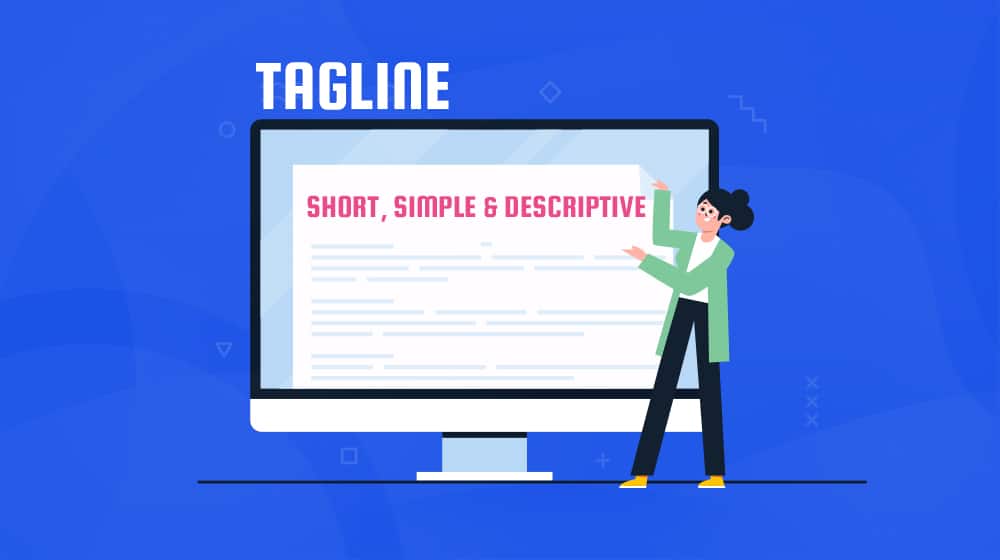
I legitimately do not know if Google much cares about taglines. I haven't been able to find any recent or decent studies with blogs using, changing, or removing their taglines to see what happens. I haven't bothered to test it myself. All I can say for sure is that Google doesn't consider them important enough to prioritize or display when a title runs long.
I'd say 99% of what you should care about with a tagline is removing any default tagline you might have from WordPress or another CMS. You don't want to be one of the thousands upon thousands of blogs that have the default title sitting there, doing nothing for you. Other than that, well, customize and test to your heart's content. It certainly can't hurt.




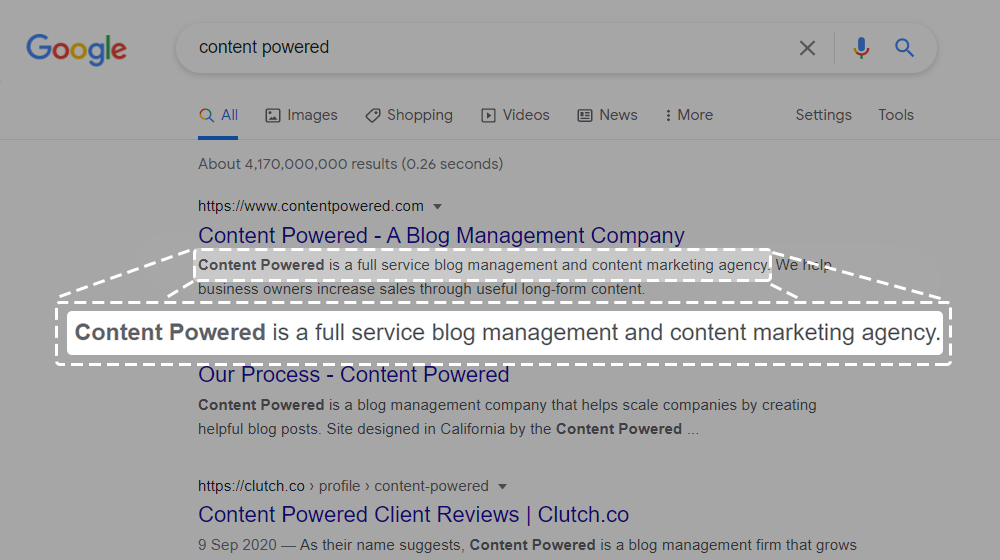

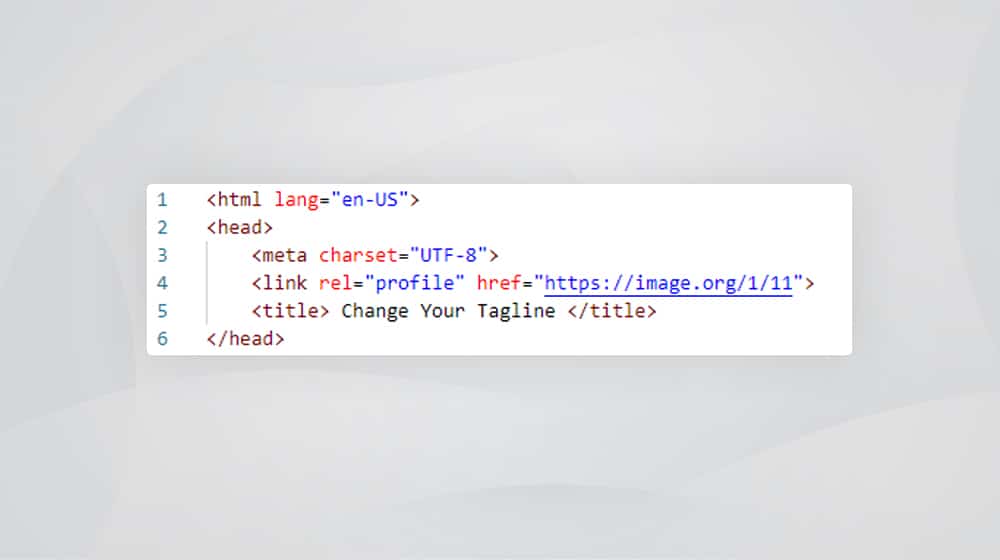
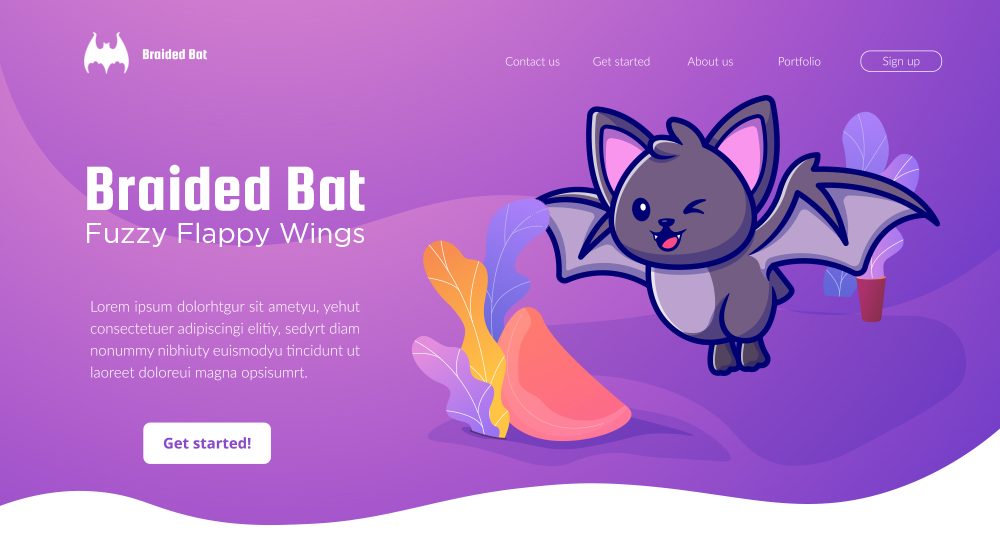
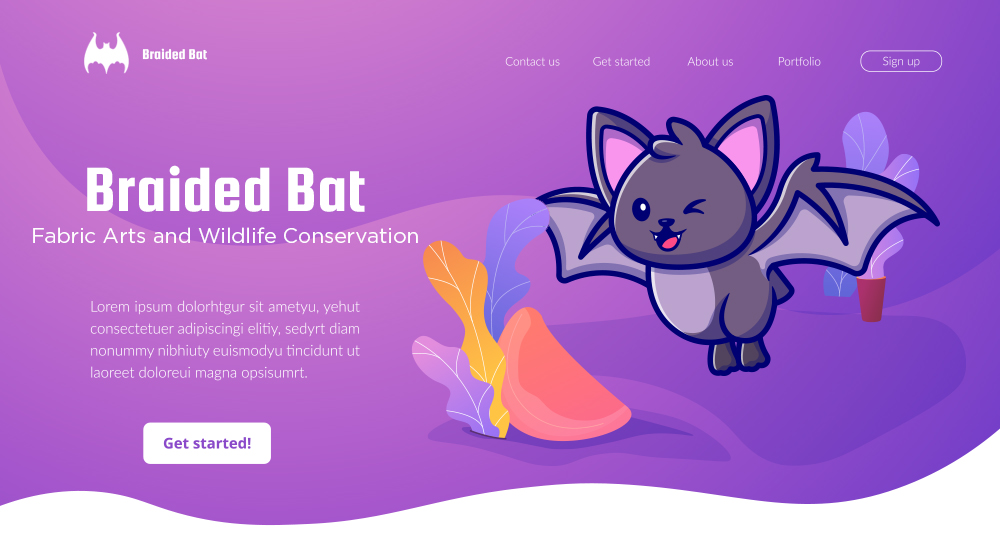
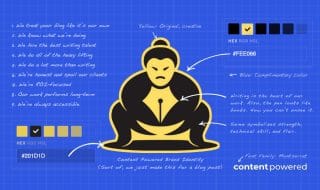
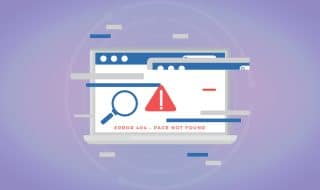

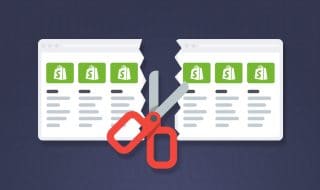
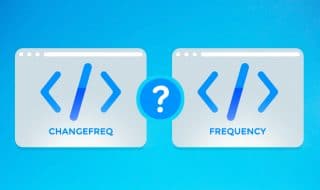


May 07, 2021
Compelling article.... now I just need to think of a good tagline 🤔
May 08, 2021
It's harder than you think! I don't even have a tagline for this blog yet, but I might add one someday if I'm feeling creative 🙂
February 28, 2022
I just can't think of a tagline that concisely fits my blog... I'm paralyzed by ideas
March 04, 2022
Hey Selena!
Roll with the one you like best, or skip it for now! You can always change it later 🙂